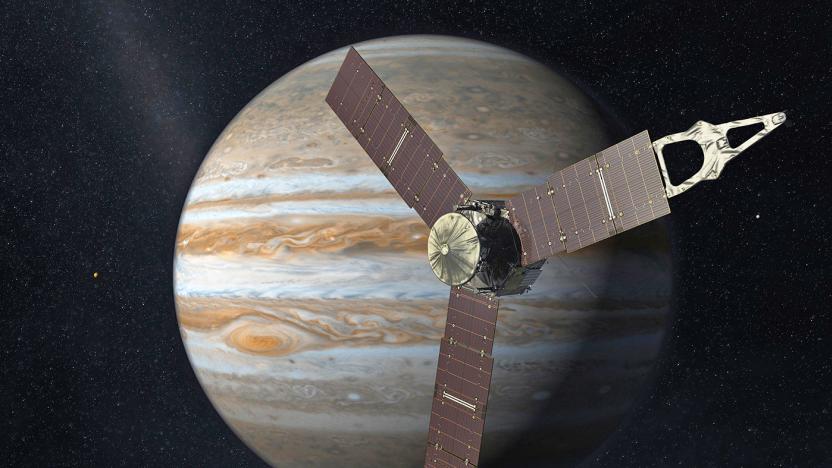NewFrontiersProgram
Latest

NASA is reviewing candidates for its next Solar System mission
NASA might be focusing on Mars recently, but it hasn't forgotten the rest of the Solar System. The agency has begun reviewing the 12 proposals it received for the New Frontiers program, the same one that gave rise to New Horizons, Juno and other notable unmanned missions. All the proposals will go through scientific and technical probing with the next seven months, with one or a few moving on to the next phase of the selection process. NASA will choose the best mission to develop in 2019 and will spend up to $1 billion to make it a reality.

NASA asteroid mission could explain how life began (and how ours might end)
There's a slight chance that the Earth could get hit by an asteroid in about 170 years, but don't you worry -- NASA's all over it. This week, the agency announced a new mouthful of a mission known as Origins-Spectral Interpretation-Resource Identification-Security-Regolith Explorer, or OSIRIS-REx, for short. The $800 million initiative, part of NASA's New Frontiers Program, will send a spacecraft to link up with 1999 RQ36 -- a nearby asteroid that's likely rich in carbon and other organic molecules that could explain how life forms originated. After about four years of space travel, the craft should get close enough to map the asteroid's surface, before using its robotic arm to extract at least two ounces of material and return it to Earth by 2023. Scientists will also pay close attention to something known as the Yarkovsky effect, which determines how an asteroid's path changes as it absorbs and emits energy from the sun. OSIRIS-REx will attempt to measure this affect for the first time, perhaps allowing NASA to predict the trajectories of potentially hazardous asteroids -- including the RQ36. The 1,900-foot wide rock is expected to approach Earth by the year 2182 and, according to recent estimates, there's a one in a thousand chance that it could actually strike our planet. Now if you excuse us, we have to go prepare a bunker for our great-great-grandchildren. Head past the break for a video and full press release.

